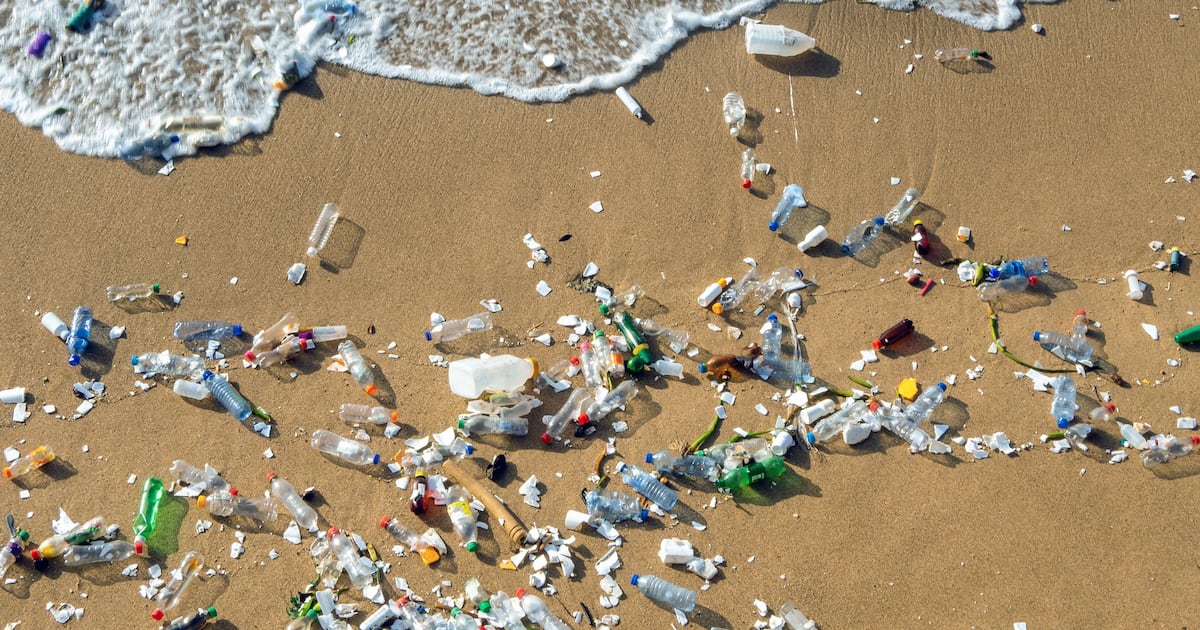The United Nations’ fifth Intergovernmental Negotiating Committee (INC-5) session on a global plastics treaty ended in Busan without an agreement, underscoring the persistent divide among nations over binding measures to tackle plastic pollution. The lack of consensus has prompted urgent calls for national action, particularly in the US, where industry leaders are urging Congress to address domestic recycling challenges to meet the growing demand for sustainable materials.
Global Plastics Treaty negotiations reach an impasse
Despite over 1,000 days of discussions and five negotiation sessions, INC-5 concluded with governments failing to agree on critical measures to address plastic pollution throughout its lifecycle. A coalition of more than 140 nations, led by Rwanda and Mexico, advocated for binding global bans on harmful plastics and chemicals, but opposition from a minority of states blocked progress.
Erin Simon, WWF’s Vice President and Head of Plastic Pollution and Business, described the outcome as a missed opportunity:
“The majority of Member states have been successful in finally drowning out a vocal minority…Now is not the time to back off on ambition but to push forward to ensure the elements that are still missing can find their way into the final draft.”
While the negotiations resulted in a draft text containing promising elements, including provisions for product design standards and bans on harmful plastics, many of these measures remain bracketed, leaving their implementation uncertain.
Eirik Lindebjerg, WWF’s Global Plastics Policy Lead, highlighted the stakes:
“If countries are not able to agree to a ban on the most harmful plastic products and chemicals, the further we get from ensuring a safe and habitable planet for current and future generations.”
WWF also stressed the urgency of establishing a robust financial mechanism to support developing nations and transitioning economies, which remains a significant sticking point in the treaty discussions.
Domestic recycling reform: A call to action
In the wake of the stalled negotiations, attention has turned to national initiatives to combat plastic waste. In the US, recycling rates have hit historic lows, with only 5% of plastics recycled in 2021, according to NPR. Industry leaders, including Saloni Doshi, CEO of EcoEnclose, are urging Congress to pass the Recycling and Composting Accountability Act and the Recycling Infrastructure Accessibility Act.
These bills, which have repeatedly stalled in the House of Representatives, aim to modernize recycling systems, improve rural access, and boost data collection to guide future efforts.
Doshi emphasized the importance of acting swiftly under the current administration:
“If the House doesn’t pass the bills under Biden, they won’t pass under Trump. Environmental issues are at the bottom of his agenda, and the legislation might come to a grinding halt under his leadership.”
Doshi also pointed to the increasing demand for recycled materials, particularly in industries like cosmetics and personal care, where sustainable packaging is becoming a priority. A 2022 McKinsey report projects that by 2030, the demand for recycled PET will outpace supply by threefold, posing significant challenges for brands seeking to meet recycled content targets.
“More and more brands are taking up recycled packaging,” Doshi noted. “If we want to achieve true packaging circularity, we must boost recycling rates and increase the amount of recycled content available to businesses.”
Implications for cosmetics and personal care industries
The cosmetics and personal care sector, heavily reliant on plastic packaging, faces growing regulatory and consumer pressure to adopt sustainable practices. The stalled global treaty negotiations and domestic recycling bottlenecks highlight the challenges in achieving sustainability goals.
The proposed US recycling legislation could help address these issues by improving infrastructure and expanding the availability of post-consumer recycled materials. However, with overall plastic recycling rates stagnating, the industry must navigate these constraints while adapting to evolving global and domestic policies.
Looking ahead: Global and national efforts must align
As the world prepares for the next round of INC negotiations in 2025, the outcomes of INC-5 and the push for US recycling reforms underscore the interconnected nature of global and national efforts to combat plastic pollution.
These developments signal an urgent need for cosmetics and personal care manufacturers to prioritize sustainability in packaging and supply chains. Proactive adaptation to policy changes and investment in recycled materials will be key to maintaining competitiveness and meeting long-term environmental commitments.

